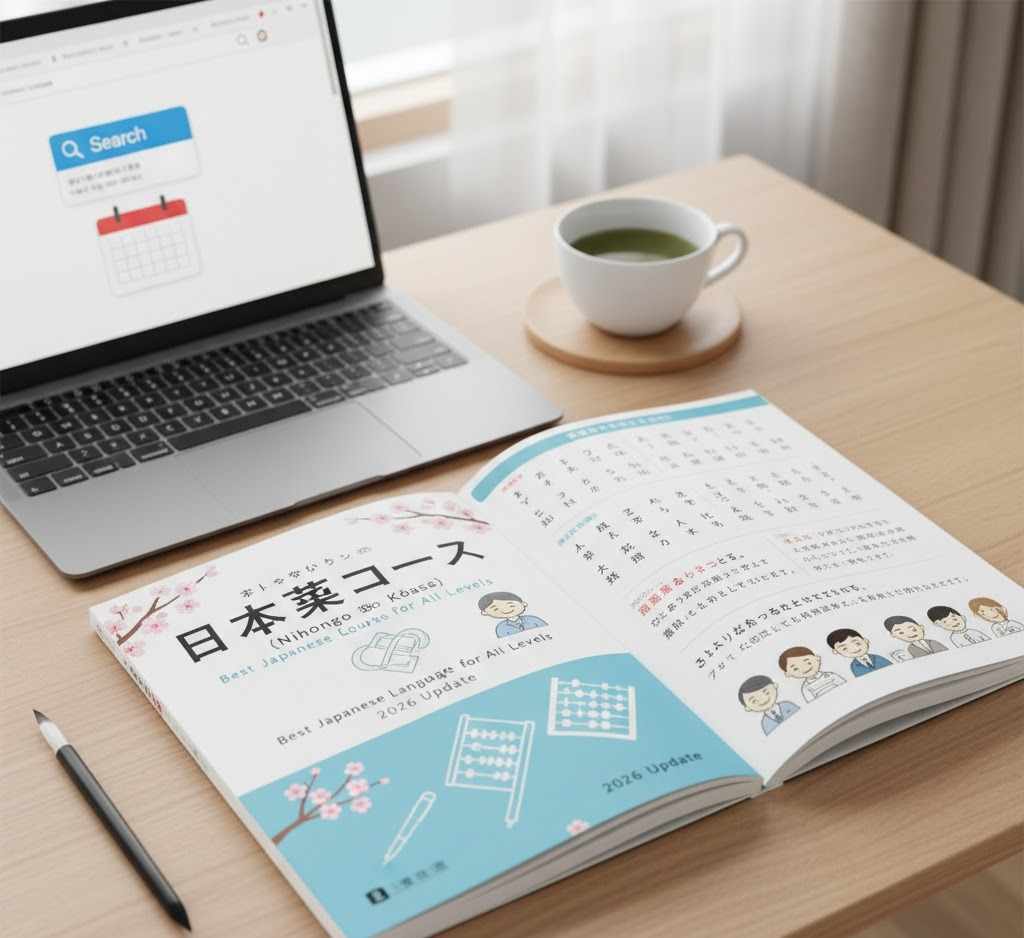
So, if you’re planning to study in Japan, let me tell you something upfront - knowing Japanese changes everything. Japan’s an incredible country with top universities, amazing culture, and honestly, some of the most polite people you’ll ever meet. But here’s the thing… If you really want to make the most out of your time there, learning the language is not just “helpful” -it’s a total game changer.
1. Understanding Japan’s Education System
Japan’s education system is known for its discipline and innovation. Whether you’re into technology, business, or even art, their universities are world-class. Now, many of them do offer English-taught programs these days, but, to be fair, a lot of important stuff -lectures, discussions, and even notices -are still in Japanese.
If you can understand and speak the language, you’ll find everything way smoother. You can talk to professors freely, make friends easily, and actually understand those small cultural things that never get translated properly. It just helps you feel more involved.
2. Why Knowing Japanese Really Helps
Let’s be honest -studying in a foreign country can be overwhelming. Everything feels new, from the food to the trains. But if you know the language, life suddenly becomes a lot easier.
Doing Better in Studies
Even if your course is in English, you’ll still come across Japanese notes, terms, or even short conversations. If you get what they’re saying, it’s easier to keep up in class. Plus, teachers really appreciate students who make an effort to learn their language.
Handling Daily Life
Simple things like ordering food, asking for directions, or reading signs -all of that becomes less stressful when you know basic Japanese. You don’t have to depend on Google Translate every time you step outside.
Understanding the Culture
Language and culture go hand in hand. When you learn Japanese, you automatically start understanding how people think and communicate. You get their humor, politeness, and little unspoken habits -you know, those things that make Japan so special.
3. Career Opportunities After Learning Japanese
Now here’s the part that most students overlook. Learning Japanese doesn’t just help during your studies -it also gives your career a serious boost later.
Working in Japan
Japan always welcomes skilled people, especially in IT, engineering, business, and teaching. But here’s the catch: most companies prefer candidates who can speak Japanese well. When you know the language, it shows you’re serious about living and working there long-term.
Global Advantage
Even if you don’t plan to stay in Japan, Japanese companies are everywhere -from car brands to gaming giants. If you can speak Japanese, you instantly stand out when applying for international jobs. It’s like a secret skill that not many people have.
4. Making Real Connections
You’ll meet tons of people while studying in Japan -classmates, teachers, locals, everyone. Speaking Japanese helps you connect for real, not just on a surface level.
Instead of hanging out only with English-speaking students, you can actually join local events, festivals, or even simple weekend trips with Japanese friends. Those small experiences? They’re what make your study abroad life unforgettable.
5. More Scholarship and Research Options
A lot of students don’t realize this, but knowing Japanese can even help you get scholarships. Programs like MEXT or JASSO often give preference to students who can show some language skills.
If you’re into research or humanities, it’s even more important -many old books, archives, and journals are in Japanese only. So yeah, it’s not just about talking -it’s about accessing deeper knowledge.
6. Fitting into Japanese Society
Life in Japan is beautiful, but it can be tricky at first. Things like bank paperwork, doctor visits, or even buying a SIM card -most of that happens in Japanese. Sure, apps can help, but trust me, it’s so much easier when you can just talk directly.
And honestly, when you try speaking Japanese -even broken Japanese -people appreciate it. They see your effort, and that builds respect instantly.
7. Making Your Experience More Meaningful
Studying abroad isn’t just about getting a degree. It’s about exploring a new world. When you know the local language, you start experiencing Japan differently -not as a tourist, but as someone who belongs.
You can travel to small towns, talk to locals, understand menus, watch Japanese movies without subtitles -all these little things make your stay richer and more personal.
8. How to Start Learning Japanese
Now, if you’re wondering how to learn it -don’t worry, it’s totally doable.
Join a good Japanese language course -a valuable one that focuses on real conversation, not just grammar.
Practice daily, even if it’s just 20 minutes.
Watch anime or Japanese shows (it actually helps!).
Use language learning apps for extra practice.
Talk with native speakers online. It feels awkward at first, but that’s how you improve.
Consistency matters more than anything. Just keep going -it slowly starts making sense.
9. About the JLPT Exam
If you want to show proof of your Japanese level, you can take the JLPT -Japanese Language Proficiency Test. It’s divided into 5 levels (N5 being the easiest, N1 the hardest).
Having a JLPT certificate is great for university applications or job interviews. It’s official proof that you can handle the language.
10. Final Thoughts
Honestly, if you’re thinking about studying in Japan, learning Japanese is the smartest thing you can do for yourself. It doesn’t just help you academically - it opens doors everywhere. From better jobs and deeper friendships to understanding Japan in its true form.
So yeah, before you hop on that flight, maybe enroll in a Japanese course. Start small. Even learning the basics can make a huge difference. Trust me, once you can understand and speak the language, Japan starts feeling like home.
FAQs
Q1. Can I study in Japan without knowing Japanese?
Yes, you can. Many programs are in English. But still, knowing Japanese makes life a lot easier and more enjoyable.
Q2. How long does it take to learn Japanese?
Depends on your effort, really. If you study regularly, you can reach a decent level in about one to two years.
Q3. Are there scholarships that require Japanese?
Some, yes. Programs like MEXT or JASSO give preference to students who can speak Japanese or have taken JLPT.
Q4. What should I do before going to Japan?
Learn some basic Japanese, understand local manners, and join a beginner course. It’ll make your life there much smoother.


Write a comment ...